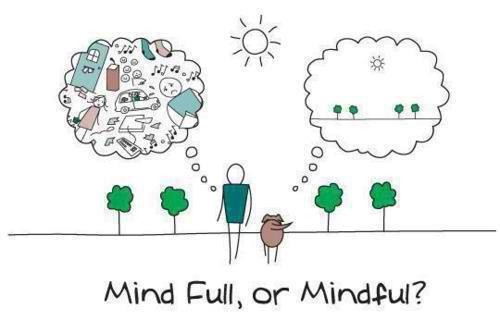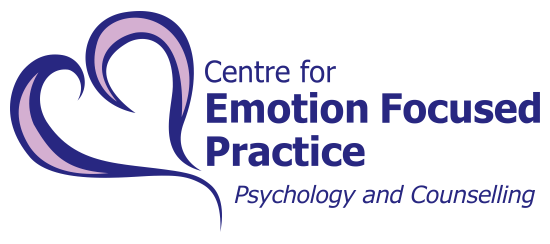Mindfulness in Therapy

Mind full or mindful? — Graphic by Flickr user dee & tula monstah
What is mindfulness?
Mindfulness is defined as a moment-to-moment awareness of one’s experience without judgement.
Mindfulness is a mental state where you focus your awareness on the present moment; you acknowledge and accept your emotions, thoughts, and sensations without judging them; you experience these as they are. Practising mindfulness makes it easier for you to slow down, appreciate the present, and be compassionate and non-judgemental.
Mindfulness as a therapeutic technique has become very popular over the past 10 years or so with more and more therapists bringing it into practice in their everyday clinical work. By using mindfulness, therapists and counsellors are able to draw out the clients and access more information than what normal talk would allow.
How does mindfulness in therapy work?
Instead of trying to conjecture as to what the problem is by asking questions, mindfulness enables the therapist to guide the client into a zone where the client can answer from first-hand experience. This is not as simple as it sounds, but an experienced practitioner skilled in this process can successfully facilitate this by selecting and adapting those mindfulness practices that are most likely to work with certain clients, and avoid those practices that are contraindicated.
The practitioner is able to gain rich information not just from the client’s answers but also from other elements such as emotions, volume of the voice, gestures, body stance, speech patterns, breathing patterns, level of excitement/tension, and so on. There is a lot of content that the practitioner is able to tap into by means of using mindfulness.
The client, with the aid of mindfulness, becomes aware of how he (or she) is feeling, how he reacts, and understand the actual emotions that makes him react in that manner. The deeper level of understanding that the person gains can help in zeroing in on to the root of the problem.
Mindfulness in action
Mindfulness based therapies have proved to be successful in reducing stress and anxiety, managing depression, in couples therapy, anger management, and so on. Here are a few scenarios to show you how mindfulness can be applied in different situations.
Couples Counselling
As an example, during a couples therapy session, when “Sheila” was narrating an incident, “Tom” let out a chuckle, making Sheila upset and defensive. I gently asked Sheila to take a moment and observe her emotions. “I feel small and insignificant.” I asked her to stay on that emotion and to let it happen. I also asked her to recollect any memories that she could associate with that emotion, or any pictures that come to mind when she did so. She said she could remember her older sister “belittling” her and laughing at her. I also called on Tom to focus on why he had chuckled and this brought out to surface Tom’s frustration at what he calls “Sheila’s obsession” with doing things in a certain way and how she made him feel useless by pointing out it was not done “properly”. The result was Tom became aware of Sheila’s insecurity and the need for order in her life and Sheila, on the other hand, gained understanding as to how her actions affected Tom. They became more sympathetic to each other, allowing them to compassionately accept their vulnerability, bringing a closeness that really helped with resolving their problems.
Combating anxiety
“Is it possible to combat anxiety with mindfulness?” – That was one of the first questions “Beth” asked when she came to us. She had been taking medication to control her anxiety, but said she would rather not be dependant on them. In her late 20s, looking cool, calm, and successful, one would hardly suspect that Beth suffers from anxiety. She describes this as a vague fear that turns her jittery, making her every thought tinged with nervousness. The longer she ignores this fear, the more nervous and jumpy she feels, setting her heart pounding, crippling her ability to cope and making every simple task seem hard.
Working with Beth over a period of time, we were able to recognise her triggers and develop strategies to cope with it. She learnt to slow down and be patient with her symptoms, to breathe consciously with the sure knowledge that her panic will pass. Her panic still continues to haunt her, but by slowing down and mindfully recognising her symptoms, and with the aid of confidence boosting strategies, Beth now knows that she can face her fears and her panic will pass soon.
At the workplace
Rhea is a social media manager and is “forever online” as she puts it. Staying too connected has taken a toll on her personal life, she says. As part of her job, she has to post on her clients’ Twitter. Facebook, and other social media pages, but she also has a very active “online social life”. She keeps checking her phone every two minutes to answer comments or to check for likes. She complains of sleeping poorly. She loves her job, but she wanted to be able to be not so “hooked on” in the personal front.
Rhea “mindfully” decided to take a sabbatical from her personal Facebook page. She also set aside a certain amount of time to manage her clients’ accounts, after which she remained offline. She also consciously allocated more time for reading, and to interact more with people in real life.
Are you able to relate to Rhea’s situation? Leave a comment below and let us know your experience. Read more about mindfulness practices at the workplace.
Mindful eating
Mindfulness is really suited to people with binge eating or emotional eating problems. A part of mindful eating involves experiencing food with all your senses, noticing the appearance, texture, aroma, taste, and sound, moment by moment. It involves increasing one’s awareness of hunger and fullness signals, distinguishing between stomach hunger and emotional hunger, and acting with awareness.
Read more about eating disorders and how you can manage them.
In conclusion, mindfulness helps to improve self-control and promotes mental clarity, emotional intelligence, and one’s ability to cultivate compassion for oneself as well as others. Isn’t that reason enough to bring it into practice in our everyday life?
If you are looking for help, whether for yourself or for a loved one, our psychologists can assist in exploring underlying issues through therapy. Please visit our practitioners’ page to find out more, or call (03) 9820-5577 for an appointment or to make enquiries.





What an interesting post this is! Mindfulness is needed to understand the state of human mind. The thing i liked in it is that it is an easy to do and brings a great peace and understanding in one’s body. The concept of mindful eating also sounds good.